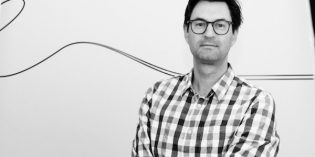Sid Lee is taking a wild and wacky approach to its 2016 summer recruitment campaign. The agency’s global internship program, Sid Lee Land, has opened applications for three-month internships across its Toronto, Montreal, Paris, New York, L.A. and Amsterdam offices.
A series of videos will give prospects “a sneak peek at Sid Lee’s artisans in their natural habitats.” In the first video, a copywriter and art director work on a campaign against a jungle backdrop, as a voiceover explains their creative process. The two agency workers then get on the table and start acting like monkeys. The spot ends with the tagline, “Now hunting raw talent.”
Other videos will feature the “inner animals” of an architecture technologist, account coordinator, designer, strategist and developer.
According to Sid Lee, its internships offer far more than fetching coffee. “We really try to give [interns] a glimpse of the real world of working in our industry, where they work on real projects and real clients, and in multi-disciplinary ways,” said the agency’s recruiter Peggy Boustany.
Interns also get training, get to attend parties, and listen to talks from the likes of co-founders Philippe Meunier and Jean-François Bouchard. “The idea is for the interns to truly have an experience,” said Annick Désy, VP of human resources and internal communications, and partner at Sid Lee. “It’s meant to be a place where you work hard, but also where you play hard and learn hard, and that’s what makes it different from other internships.”
Sid Lee is promoting the campaign across all its social media channels including Twitter, SnapChat, Instagram, Facebook and LinkedIn. Each week, a different Sid Lee office will take over the company’s social media channels and give a glimpse of life in various roles. Sid Lee is also hosting Q&As via Facebook Live to answer students’ questions about agency life.
And for those who have trouble choosing between the available positions, Sid Lee is releasing a Buzzfeed quiz that can help applicants decide “which type of animal they can be in this environment,” said Boustany. “It leads them to a specific species, which helps them apply for the actual role that they would be good at.”










